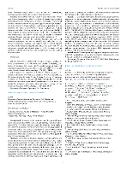Epigenetic Characterization of Squamous Cell Carcinoma and Mucoepidermoid Carcinoma Based on DNA Methylation Data: An In-Silico Study

Publication date
2025Published in
EJC Skin CancerPublisher / Publication place
Elsevier Ltd. (Oxford)Volume / Issue
3 (S1)ISBN / ISSN
ISSN: 2772-6118ISBN / ISSN
eISSN: 2772-6118Metadata
Show full item recordCollections
This publication has a published version with DOI 10.1016/j.ejcskn.2025.100695
Abstract
Background: A recent study demonstrated that parotid squamous cell carcinomas (SCCs) are most potentially metastatic cutaneous SCCs. To define whether epigenetic alterations may explain the different molecular events between SCC and Mucoepidermoid Carcinoma (MEC), this in-silico investigation analyzed DNA methylation data from open-source IDAT files on gene ontology corresponding to 156 surgical resections of gingivobuccal SCC, parotid/skin SCC and salivary MEC.Methods: IDAT files in Illumina's genetic analysis platforms are binary data files that store raw intensity measurements from microarray scanning processes. To analyze the molecular data on the IDAT files, specific probe IDs were used to generate genotype calls by bioinformatics mapping tools that retained the mean beta value for each pathological methylation change. Values greater than 0.7 were considered hypermethylated. We then utilized machine learning algorithms and Python-based bioinformatics pipelines for gene ontology clustering to identify shared and unique pathways, and run pathway enrichment analysis and dimensionality reduction techniques, and calculate statistical significance.Results: It was found that OSCC demonstrated unique pathway signatures, including aberrations in relaxin signaling, melanogenesis indicating altered pigmentation-related gene networks, oxidative phosphorylation, and disruptions in arachidonic acid metabolism. Conversely, shared molecular pathways encompassed aberrant piRNA metabolic process involving dysregulated PIWIL2, PIWIL4, DDX4, TDRD12, GPAT2, FKBP6 and MAEL genes, needed to maintain genomic stability; aberrant xenobiotic gglucuronidation mediated by UGT1A gene family, glucuronate metabolic conjugation, and dyfunctional chemokine signaling pathway comprising GRK1, CCL13, XCR1, CCL11, NCF1, CCL7, CCR9, PIK3CB, CCR4, CCR3 that are controlling immune response and cellular migration. Cell adhesion molecule dysregulation was also detected, involving CLDN18, CLDN20, NLGN2, CLDN24, PECAM1, CLDN16 that modulate intercellular communication. The unique MEC epigenetic pathway included only fibrinolysis disruption.
Keywords
Epigenetic Alterations, SCC, MEC, DNA Methylation, Pathway Enrichment
Permanent link
https://hdl.handle.net/20.500.14178/3088License
Full text of this result is licensed under: Creative Commons Uveďte původ-Neužívejte dílo komerčně-Nezpracovávejte 4.0 International


